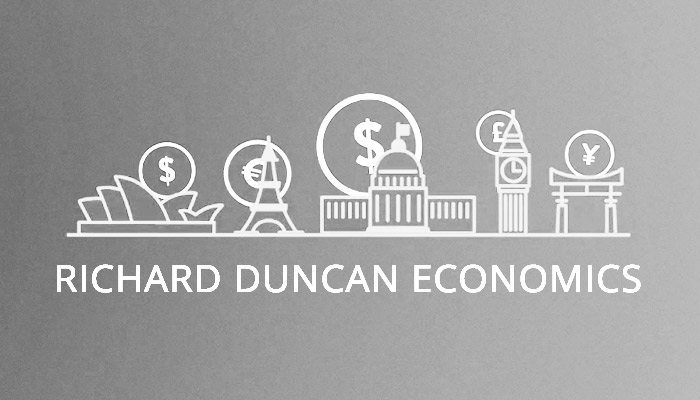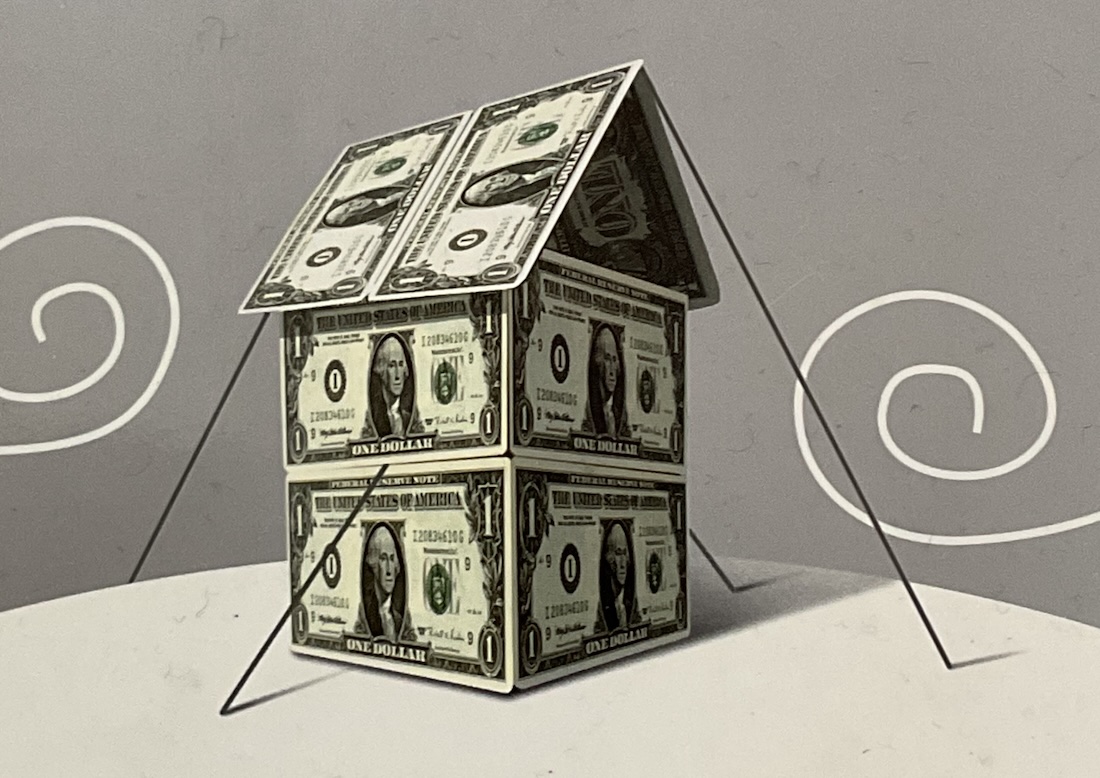Why ECB QE Will Drive European Stock Markets Higher

Posted February 4, 2015
The European Central Bank has announced a massive Quantitative Easing program that is very likely to push European stock prices significantly higher.
The new Macro Watch video, ECB QE, explains everything you need to know about the ECB’s plans to create and invest Euro 60 billion a month to defeat deflation in Europe. Here are the topics covered (in this 23 minute video, with 36 downloadable charts):
• What the ECB is doing and why they are doing it.
• How this program differs from what the ECB has done up until now.
• What’s wrong with Europe’s economy.
• How ECB QE is supposed to work.
• Why it is likely to push European stock markets higher.
• How it compares with other central banks’ QE programs.
• How it will impact US Dollar Liquidity.
• How it will impact Global Liquidity.
• Why QE is the same thing as government debt cancellation.
Make no mistake, ECB Quantitative Easing is an enormously important development for Europe and for the global economy. You need to understand what has happened.
If you are a subscriber, log in to Macro Watch and watch ECB QE now.
If you have not yet subscribed, join here:
http://richardduncaneconomics.com/product/macro-watch/
For a special 50% subscription discount, hit the “Sign Up Now” tab and use the coupon code: massive
You will find more than 13 hours of Macro Watch videos available to watch immediately. A new video will be added approximately every two weeks.


Okay, so we have a race to the bottom as each country\economic zone tries to export it’s way out of sluggish economic growth by devaluing it own currency at the expense of other global economic players. Who can win this battle and when does the real shooting war(s) start? It appears to me that Japan has gotten a free ride so far with few competing countries responding to their stealing of market share by driving down the value of the yen. How does this all resolve? Another giant credit bubble bursting like 2008? I am confused – deflation first followed by hyperinflation seems to be what you see this leading to. Hard to do financial planning for clients with such an unsettled future ahead for everyone over the next 5 – 10 years. .
Thanks, Jack.
I have very similar questions as Jack. Additionally, I If policy makers are not going to recognize what you think may be a wonderful opportunity to invest in technology and education, in the long run what good is going to come of all this money printing? What is the end game? Seems like we’re way past the point of no return. Few people have any idea of the Russian roulette governments have played with our futures. Thank you for your insights. Mark
I actually think that the delay of the ECB QE may help continue our economic recovery in the U.S, This may help lift the U.S. stock market higher as well as the European Stock Market. Even though it is not the final answer, I think it is the right move currently and should help the U.S. economy (overall) to start QE in Europe as the U.S. exits its easing program. Though we need much more action in other areas from the government that Richard mentions, I am very relieved the ECB is making this effort.
Thanks for the comments & questions above. As you know, I believe we have a massive global economic bubble caused by extreme amounts of credit creation over the last four to five decades. However, I think it would be a mistake to bet on it imploding in the near term. If the economies start to go back into deep recession, the governments will become afraid and they will resort to big fiscal deficit spending programs again to stimulate the economy. Germany’s budget in almost balanced. The US budget deficit is about 2.5% of GDP, which is quite low. The governments can borrow at very, very low interest rates. So, the big question is: what would they spend the money on? War? Infrastructure? Investments in new industries and technologies? Only the last option would provide a lasting cure.
Hi Richard,
Could you explain briefly how the following works in practice? (from slide 33 of the Feb 4 ‘ECB QE’ deck):
“The government pays interest on its bonds to the central banks and then the central bank return to the government the profits it earn from the interest. This means the bonds have, in effect, been cancelled.”
At what stage of the process, following the ECB buying a sovereign bond in the market, is the interest earned by the ECB from that bond then returned to that government (as issuer)?
Much appreciated,
Regards
Roland
Nice work Richard. Thank you. Your theory that QE in the EU is actually government “debt cancellation” is quite interesting. Two questions: 1. Does this in any way tie in with the $2.4 trillion of U.S. corporate debt that “disappeared” as discussed by Jeff Snider (i.e., the debt never really existed in the first place, since it was simply an erroneous “plug” number resulting from “miscalibration”)?, and 2. How does the $1.2 trillion of EU debt to be created in 2015-2016 resolve itself on the books of the ECB? Do they just quietly write it off since it really never existed in the first place? If not, how to they unwind the debt without becoming insolvent?
Hi James, Thanks for your questions. On the first one, I don’t think this does tie in with the “disappeared” corporate debt, because the central banks are buying government bonds (not corporate bonds) and, technically, they have not been cancelled. They are still on the Fed’s books as assets.
Regarding your second question, right now all the central banks are saying that, one day, (one day in the very, very, very distant future) they will sell the bonds they bought back into the market (or, alternatively, take the cash from the government when the bonds mature – which would mean the government would have to borrow that much money from the markets to repay the central bank). If the central banks every did either one of those things, it would suck a lot of money out of the financial markets. It would be super-tightening, just like QE was super-loosening. It would be a terrible blow the the economy. So, I don’t think they will ever do that. Right now, when the bonds it owns mature, the Fed just rolls them over, i.e. buys new ones with the proceeds. So, in reality, that means they don’t mature.
Regarding insolvency, these days I don’t think it matters if a central bank becomes insolvent or not. If it does, it can just print as much money as it wants and recapitalise itself.
Best, Richard
Richard can correct me but I don’t believe QE cancels the debt. All the interest income is transferred back to the Central Govt but the principal must be repaid. So it’s like an interest free loan. As bonds mature the Government must pay the principal on the bond back to the Central Bank. But if the Central Bank takes the proceeds from the maturing debt to buy more debt and continues to do that every time bonds mature, then they have defacto canceled the debt. That may be what reaching is talking about.
To get out of this price deflation and debt deflation spiral the Government needs to cut taxes, increase spending or both. If it cuts taxes, consumers will be able to increase spending and pay down their debt. If the Government increases spending (ideally on investments into the economy), that too will pump money into the economy. This will result in the Government debt expanding but as Richard has outlined, the Debt can be defacto canceled by the QE of the Central Bank. As long as this is not significantly inflationary, this should be done. We currently have a unique opportunity to make massive investments without causing inflation.
Lastly, I am concerned QE will not have as positive effect in the EU as it has in the US. Partly because the EU frowns upon member Governments running Govt deficits and interest rates are already so low that lowering them from here won’t help much.
Nonethless, I have bought a little of a Euro ETF in hopes that the Euro stock market does go up a bit.
I hope this blog expands. It’s interesting to see everyone’s comments. I think we all learn a lot.
Hi James,
Yes, I should clarify that. QE by itself does not cancel the government debt. But, in reality, until the central bank sells the government bond bank into the market (or actually takes cash from the government when the bonds mature), then it is just as if the bonds had been cancelled — again, only until the government sells them, in which case, that could be thought of as “un-cancelling” them. But, my real point with all this, where I am going with this is that I think the central banks should cancel them and then the government should do what you suggest in your second paragraph. I’m planning to do a video on that soon. Please see my other two replies to Roland and James for more on this.
Regarding QE not being as effective in Europe as in the US, you may be right since interest rates are already so low there. But, by buying so many bonds, the ECB is going to force investors to buy other assets, which should mean rising asset prices on Euro-denominated assets. But, frankly, you can never be sure about anything. Good luck! Richard
Roland, Thanks for your question (above) on exactly how the ECB returns the money it earns to the government. Things are much more straightforward with the Fed. The Fed earns money on the government bonds it bought through its QE program and then remits all its profits to the Treasury Department (i.e. the US government). It returned $88 billion in 2012 and $80 billion in 2013. You can see this on page 98 of the Fed’s 2013 Annual Report. Here’s the link:
https://www.federalreserve.gov/publications/annual-report/files/2013-annual-report.pdf
With the ECB things are more indirect. The ECB makes a profit (and this profit will grow as the ECB acquires more bonds through ECB QE). It then distributes its profits to the National Central Banks (the central banks of France, Germany, Italy, Spain, etc., etc.) that own the ECB in proportion to their equity stake in the ECB. Then, the National Central Banks pay out their profits to their respective governments, either through taxes or dividends. Here’s the link to an ECB press release announcing its 2013 profits:
https://www.ecb.europa.eu/press/pr/date/2014/html/pr140220.en.html
There you can see “The Governing Council decided to make an interim profit distribution, amounting to €1,370 million, to the euro area national central banks National Central Banks (NCBs) on 31 January 2014.”
You have to dig through the annual reports of each of the National Central Banks to find how they distribute their profits to their respective governments.
Best, Richard
I was fascinated by Richard’s material on creditism.
Since it’s highly unlikely that the government will follow Richard’s advice I along with others would be interested on how it all ends once the government life support doesn’t work anymore. Is Richard going to write a book on this?
Regards
Tony